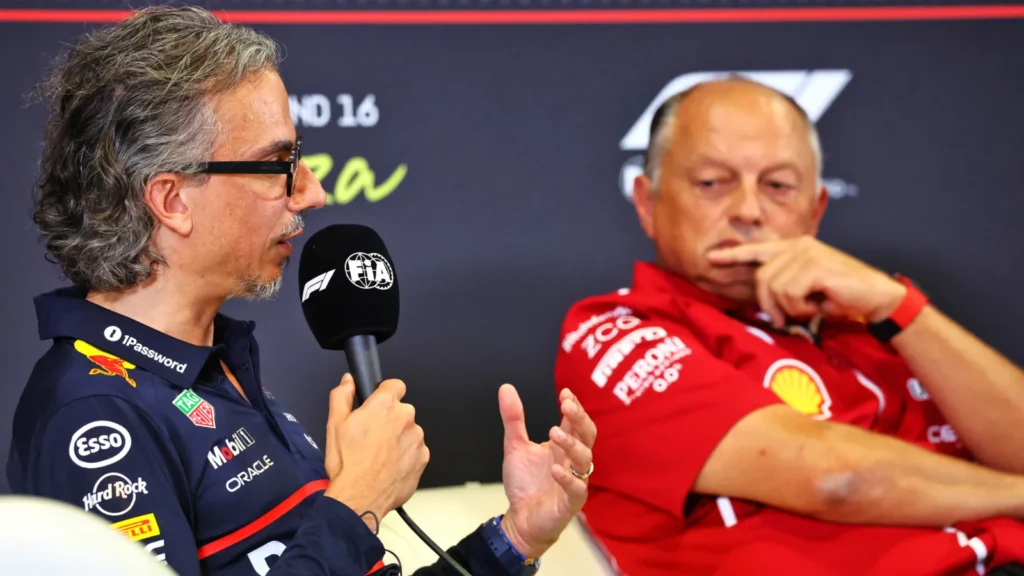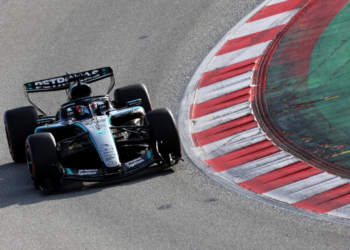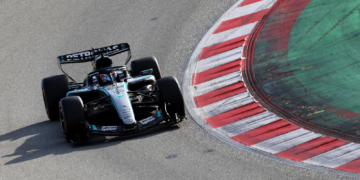Formula 1 team bosses have been coy on voicing a solution to curb rising costs of the sustainable fuels that will power cars next year, amid the launch of new technical regulations.
The sport will see a radicalisation through the introduction of the new regulations, which threaten to shake up the sport in ways not seen since the start of the V6 hybrid era in 2014.
A cornerstone of the regulations will be, along with a new 50-50 split between electric power and ICE, is 100 per cent sustainable fuel, putting F1 on course to be Net Zero from 2030.
But a significant drawback is the bill teams will have to foot for these fuels, with former Red Bull boss Christian Horner warning earlier this year that it might be “the biggest area of differential” between some squads on the grid.
Speaking ahead of this weekend’s Italian Grand Prix, Horner’s replacement, Laurent Mekies, was cagey when asked what could be done to prevent the costs rising further.
“Look… Completely different regulations. It’s going to be a breakthrough in terms of technology,” he told media including Motorsport Week.
“That’s what matters right now. It’s a breakthrough in terms of technology. It’s the first time the sport will run on 100 per cent sustainable fuel.
“It’s going to be an incredible challenge for all the fuel manufacturers, all the PU manufacturers to get to extract as much performance from that sustainable fuel.
“There will be a cost layer at a stage or another.
“But at the moment, it’s coming well after the considerations about getting a fuel that is meeting those very, very high requirements and getting the maximum performance out of it.”

Adaptations needed to keep F1 fuel costs ‘under control’ – Vasseur
Ferrari boss Fred Vasseur was similarly uninclined to provide some concrete ideas, but stated it is necessary for a solution to be found to ensure it is kept “under control”.
“Honestly, I think we don’t have to underestimate the challenge to go to the 100 per cent sustainable fuel,” he explained.
“It’s a huge step forward for F1 and new direction that we are taking. Honestly, the fuel is not yet frozen. It means that it’s difficult to know exactly the cost of the fuel for next year.
“But for sure, it’s a bit more than the current one and the current season. But this meeting is more for mid-term, long-term to try how we can adapt the regulation in the future to keep it under control. But we don’t have to underestimate the benefit of the sustainable fuel.
“I think it has a cost for sure, but it’s a huge step forward for F1.”
READ MORE – McLaren delivers update on Lando Norris F1 power unit concerns after Zandvoort DNF









Discussion about this post